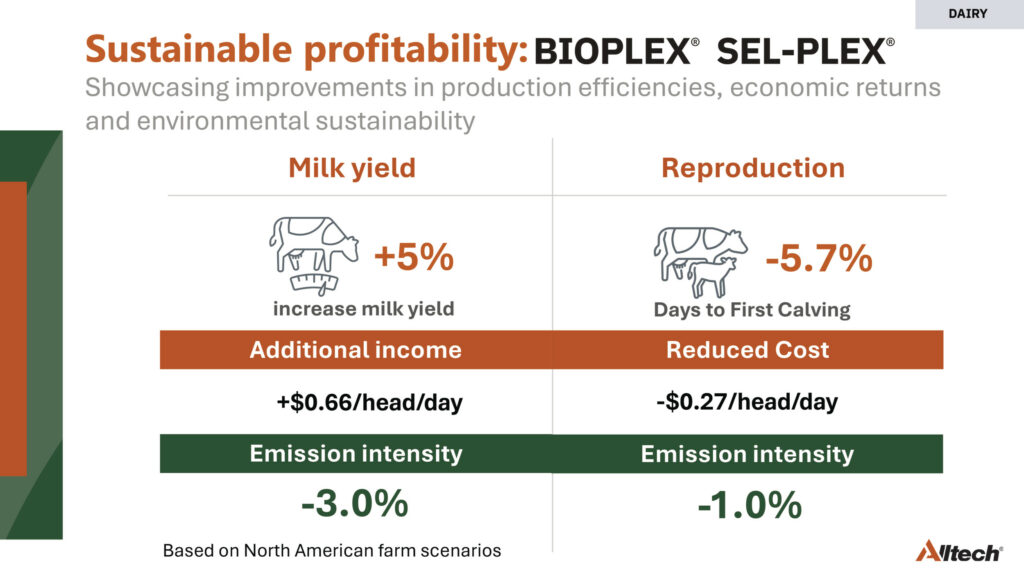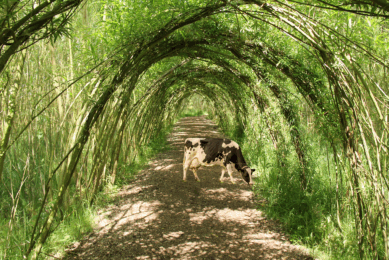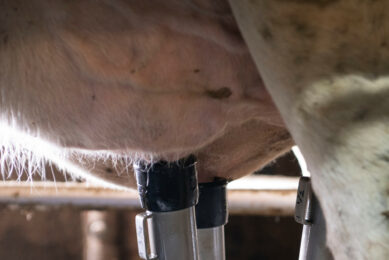Creating a sustainable, profitable future for agriculture

Sustainability in the agri-food sector often sparks debate as stakeholders strive to balance environmental goals with economic impacts. Understanding where the sustainability issues lie is crucial for all of us.
Alltech conducted an insights survey in 2023 with 26 one-to-one interviews and a quantitative study with over 2,500 respondents including some of the key players in our industry. A key conclusion from this survey was that the 3 most perceived sources of pressure on environmental sustainability are government policies, regulations, and consumers. And the survey revealed that the most perceived barriers are the lack of reward in economic models, along with reduced profitability and difficulty measuring.
These perceived barriers create friction, which is at the root of many sustainability challenges in the agri-food supply chain. The entire industry needs a better, more efficient system with greater understanding of the issues and more transparent communication.
What are the solutions?
There is no silver bullet, but we can achieve these goals without compromising supply chain resilience by focusing on these criteria:
- value creation for producers;
- health and productivity for animals;
- regenerative agriculture for land.
By balancing these 3 focus areas, we can collectively achieve longevity and substantial progress instead of potential short-term inflationary impacts that reduce resilience, compromise productivity and erode producers’ appetite to adopt new practices.
Value creation for producers
It all starts with the producer. By building value together, we support a key pillar of sustainability: economics. This includes boosting traditional revenue streams and opening new opportunities through areas such as carbon markets and renewable energy. It also involves broader resource efficiency, including improved fuel, electricity and fertiliser use.
Knowledge transfer offers one of the most cost-effective methods for improving producer’s value creation. It can build substantial long-term gains, enable producers to adopt new management practices, and improve and enhance existing systems.
An innovative approach to evolving business models is utilising manure and other waste products. By upcycling waste into energy or enhanced fertilizers, farmers can boost resilience. For example, manure and crop residues can be converted into renewable energy or valuable byproducts, creating new revenue streams while minimising waste.
Manure is often seen in a negative light and it poses ecological challenges, but it is increasingly becoming a solution. Technological interventions can now help add value to manure by reducing its environmental impact and enhancing nutritional value.
Many farmers generate carbon credits using minimal disturbance cultivation and other land-based interventions. While this can be a practical long-term strategy, some producers have also used in-feed nutritional solutions for more immediate revenue generation. Besides reducing methane emissions, these technologies have been shown to enhance animal productivity, creating a win-win scenario for farmers. More novel revenue streams are emerging. and businesses are exploring ways to reduce emissions with the industry itself.
Health and productivity for animals
For over 40 years, Alltech has prioritised animal health and productivity to alleviate sustainability challenges. Efficient animals convert feed into meat, milk, or eggs while producing fewer emissions, needing less land, and generating less waste. They also upcycle waste, utilise marginal land, and enhance soil health and fertility.
Implementing sustainable livestock management practices can further support animal health and productivity. These include providing balanced nutrition, maintaining clean and comfortable living conditions, and implementing disease prevention and control measures. By prioritising animal health, producers can improve the efficiency of their operations, reduce their environmental footprint and ultimately enhance the profitability of their businesses.
Regenerative agriculture for land
Improving soil health is vital to tackling climate and biodiversity challenges. Livestock supports regenerative agriculture, and Alltech focuses on enhancing livestock productivity through tailored nutritional solutions.
Having stock on land can create nutritional barriers that compromise productivity. Self-fed blocks are a tried and tested way of bringing holistic health benefits to animals while enabling a more targeted approach to pasture management. Applying Alltech’s organic trace minerals through self-fed blocks can enhance productivity while minimising nutrient leaching.
Water quality is another key issue in regenerative agriculture, but manure and other waste flows can also damage water quality. Having stock that enhances soil health and does not negatively affect water quality can help mitigate these challenges. By focusing on precise nutritional support for livestock, we can help reduce these challenges.
Soil health principles are key to regenerative agriculture, promoting nutrient cycling, water retention, and carbon sequestration. Healthy soils boost agricultural sustainability by sequestering CO₂, fostering microbial diversity, enhancing plant health, and preventing nutrient runoff that harms water quality.
Through Alltech Crop Science, Ideagro, and the Safeguard Our Soils (SOS) initiative, we develop natural solutions to protect crops and soil and ensure their thriving in increasingly volatile environments.
More efficient and less wasteful farms require less land and generate fewer local negative environmental impacts. This is crucial for supporting local biodiversity while reducing reliance on feed from high-opportunity-cost land, which can also have significant implications for supply chain biodiversity. At the same time, these measures can save on input costs.

Making a measurable impact
Our goal is to create a measurable impact on all parts of the value chain through our services and technology suite. By focusing on producer-centric interventions and accurately measuring their outcomes, we can demonstrate tangible impacts and help share the value generated. Producers can realise these goals by implementing technology, making strategic investments, and utilising innovative practices.
The figure above demonstrates how Alltech’s organic trace minerals can improve productivity as well as financial and sustainability performance. These indicate how productivity can improve a broader range of important issues.
To help bring this story to a broader audience, Alltech’s president and CEO, Dr Mark Lyons, spearheaded the groundbreaking documentary World Without Cows. The film tells many human stories and highlights cows’ underestimated role in a healthy, profitable, and environmentally resilient food system.
Join 13,000+ subscribers
Subscribe to our newsletter to stay updated about all the need-to-know content in the dairy sector, two times a week.










